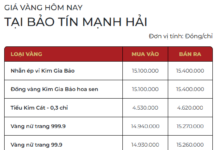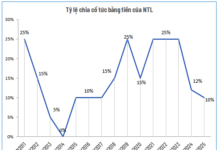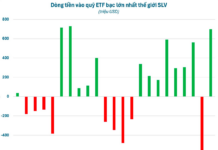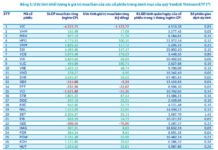The Never-Ending “Race”!
Vietnam’s e-commerce market continues its positive growth trajectory, according to Metric’s report for Q3 2024.
As of September 2024, the market achieved a total revenue of 227.7 trillion VND, a 37.6% increase compared to the same period last year. Notably, the third quarter alone contributed 84.7 trillion VND, indicating the vast potential for development in this sector.
In late September 2024, Temu – a cross-border e-commerce platform owned by Chinese conglomerate PDD Holdings – entered the scene and captured the market’s attention.
However, on December 4, the platform announced a temporary halt to its operations, citing their ongoing collaboration with Vietnam’s E-Commerce and Digital Economy Agency and the Ministry of Industry and Trade to register for providing e-commerce services in the country.
Most transactions and affiliate marketing commission policies have been removed by Temu, and online platforms have simultaneously stopped displaying Vietnamese. There is no further information about when the platform will resume its activities.

Temu has not set a date for resuming operations in Vietnam.
In a separate development, Viettel Post revealed plans to launch VIPO Mall, an online wholesale platform that facilitates two-way connections between domestic customers and international suppliers without intermediaries.
VIPO Mall is designed as a mini e-commerce platform within the Viettel Post application, featuring a Vietnamese interface and allowing payments in Vietnamese Dong.
Similar to some popular e-commerce platforms today, VIPO Mall will integrate the entire process, from searching and ordering to payment and transportation, into a single platform.
By leveraging the logistics advantages of its parent company, VIPO Mall is expected to reduce delivery time by 3-7 days compared to other services.

VIPO Mall facilitates purchasing from Chinese e-commerce platforms (Photo: Thành Vũ)
The launch of VIPO Mall marks a significant step forward for domestic businesses in the e-commerce landscape as it is Vietnam’s first two-way cross-border wholesale platform. In addition to purchasing from China, Vietnamese products will also be sold on VIPO Mall to reach a global customer base.
Expanding Cross-Border Logistics Network: Preparing for the Launch of VIPO Mall
In March 2024, Viettel Post invested in the development of two large logistics centers in China.
In the city of Nanning, Viettel Post established a logistics center and collaborated with local businesses to advance AI and Big Data technologies and implement smart border gate models.
In Pingxiang City, the company reached an agreement with enterprises to develop the China-ASEAN Agricultural Products Trading Center, effectively utilize the Yen Vien – Dong Dang – Pingxiang – Nanning railway route, and exchange technologies to promote smart border gate projects.
By completing its cross-border transportation infrastructure network, Viettel Post not only enhances the competitiveness of Vietnamese goods in the billion-people market but also accelerates logistics connections with ASEAN countries and China.

Logistics infrastructure strategy paves the way for e-commerce development.
By April 2024, Viettel Post had signed a cooperation agreement with Laizanbao, a Chinese cross-border e-commerce enterprise, as part of the preparations for the launch of VIPO Mall. Essentially, VIPO Mall operates as a shopping agent service for Chinese e-commerce platforms.
Previously, Chinese companies had established such services in the international market by setting up representative offices, collaborating with logistics companies, developing multilingual transaction platforms, and establishing international payment systems.
Notable brands in this space include Superbuy and Basetao, which specialize in purchasing goods from Taobao for global customers; Buyandship, which focuses on the Asian market with its multi-country package forwarding service; and EZBuy, which originated in Singapore and later expanded throughout Southeast Asia.
“Vietnam: The Rising E-Commerce Dragon of Southeast Asia”
The Vietnamese e-commerce market is projected to experience a compound annual growth rate (CAGR) of 28% from 2025 to 2033, underpinned by rising internet and mobile penetration, and the increasing adoption of digital payments. The government’s digitalization agenda is also a key driver of this impressive growth trajectory, setting the stage for a vibrant and dynamic online retail landscape in Vietnam.










































